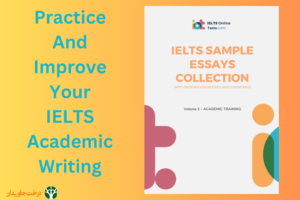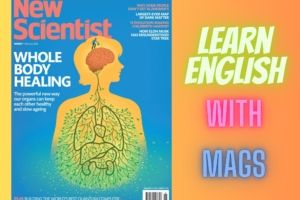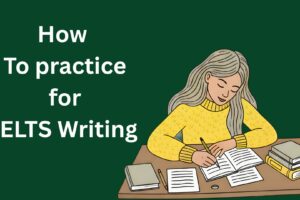واژگان پیشرفته آیلتس : موضوع اقتصاد در آیلتس (2)
- ارسال شده توسط درخت جاویدان
- تاریخ 8 بهمن 1399
- نظرات 0 نظر

واژگان آیلتس
در قسمت پیشین از اهمیت موضوعات اقتصادی در این روزها گفتیم و یک فهرست از واژگان آیلتس و تافل را معرفی کردیم. در این قسمت به سراغ قسمت دوم میرویم.
موضوع اقتصاد در آیلتس
Macroeconomic (adj) Macroeconomics (noun) | Related to the study of large economic systems, such as those of whole countries or areas of the world | The government strategy is to maintain stable macroeconomic factors. |
Market economy (noun) | An economic system in which salaries and the prices of goods are determined by supply and demand rather than by the state | The company has played a leading role in helping to educate managers from the emerging market economies of Eastern Europe. |
Monopoly (noun) | The complete control of trade in particular goods or the supply of a particular service | There are laws to stop companies becoming monopolies. |
Predatory pricing (noun) | The fact of a company selling its goods at such a low price that other companies can no longer compete. | The airline has reduced its prices so sharply that it has been accused of predatory pricing. |
Privatisation (noun) | The act of selling a business or an industry so that it is no longer owned by the government | There were fears that privatisation would lead to job losses. |
Recession (noun) | A difficult time for the economy of a country. | Many economists are worried that Covid 19 could cause a deep financial recession. |
Recovery (noun) | The process of improving or becoming stronger again. | The government is forecasting an economic recovery |
Regulation (noun) | An official rule made by a government or some other authority | Under the new regulations spending on public services will be strictly controlled |
Revenue (Noun) | The money that a government receives from taxes or that an organization, etc. receives from its business | The government may face a shortfall in tax revenue in the future |
Risk (Noun) | A person or business that a bank or insurance company is willing/unwilling to lend money or sell insurance to because they are unlikely/likely to pay back the money. | With five previous claims, he’s now a bad insurance risk. |
Shares (Noun)
| Any of the units of equal value into which a company is divided that are sold raise money. People who own shares receive part of the company’s profits. | The company purchased 1.5 million shares of the stock last week |
The public sector (noun) | The part of the economy of a country that is owned or controlled by the government | Jobs in the public sector can be more stable than those in the private sector. |
The private sector (noun) | The part of the economy of a country that is not under the direct control of the government | The private sector runs the vast majority of rail services in the UK. |
Stock exchange (noun) | A place where shares in companies are bought and sold; all of the business activity involved in doing this. | The London stock exchange is one of the most famous in the world. |
Stock market (noun) | The business of buying and selling shares in companies and the place where this happens | The stock market crash of 2008 was a very tough time for banks and the financial markets. |
Supply and demand (noun) | The relationship between the amount of goods or services that are available and the amount that people want to buy, especially when this controls prices | Oil prices should be set by supply and demand, and not artificially regulated. |
Takeover (noun) | An act of taking control of a company by buying most of its shares. | The attempted takeover of the company was stopped by the competition commission. |
Tariff (noun) | A tax that is paid on goods coming into or going out of a country | A general tariff was imposed on foreign imports |
Tax avoidance (noun) | Ways of paying only the smallest amount of tax that you legally have to | The Inland Revenue estimates that it is losing at least £10 billion a year because of tax avoidance. |
Tax Evasion (noun) | The crime of deliberately not paying all the taxes that you should pay | Tax evasion schemes were responsible for over £16m of frauds last year. |
Tax-free (adj) | (money, goods, etc.) that you do not have to pay tax on | The country created a tax-free allowance for imports coming into the country. |
Tax haven (noun) | A place where taxes are low and where people choose to live or officially register their companies because taxes are higher in their own countries | Many companies choose to register their businesses in a tax haven such as Panama to avoid paying high domestic taxes. |
Trade deficit (noun) | A situation in which the value of a country’s imports is greater than the value of its exports. | Brazil has run a $14 billion trade deficit with the US. |
Treasury (noun) | The government department that controls public money | The Treasury estimates that the top 1% of earners will pay about 32.3% of all taxes this year. |
Unstable (adj) | Likely to change suddenly | The unstable economy made investors cautious to invest. |
ممکن است همچنین دوست داشته باشید

دانلود کتاب نمونه مقالات رایتینگ آیلتس آکادمیک

